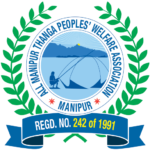The document titled “Health Beliefs and Perception of Well-being among the Lois of Thanga in Manipur, India” explores the traditional health beliefs and practices of the Lois community residing in Thanga Island, Loktak Lake, Manipur. It highlights how cultural and traditional beliefs shape the community’s approach to health and well-being. Here is a summary based on the key sections of the paper:
Abstract
The study focuses on understanding the Lois community’s perception of health and well-being, which is deeply rooted in their cultural and traditional beliefs. Despite modern medical advancements, the community largely adheres to traditional health practices and beliefs in supernatural causes of illness. The paper suggests that policymakers and health service providers should consider these cultural beliefs to enhance healthcare accessibility and effectiveness in the community.
Introduction
The Lois of Thanga, a fishing community, possess unique health beliefs influenced by their culture and religion. The study investigates how these beliefs determine their health-seeking behaviors and impact their health outcomes. It emphasizes the importance of understanding these cultural nuances to improve health interventions and policies tailored to such indigenous communities.
Material and Methods
The research involved structured face-to-face interviews with 200 respondents from the Lois community, focusing on their health beliefs and the cultural context of their health practices. The study settings and data collection methods are meticulously detailed to underscore the community-centric approach of the research.
Results and Discussion
The findings reveal that the Lois community associates good health with the absence of physical incapacity rather than clinical health indicators. Health issues are often attributed to supernatural causes, with traditional rituals and prayers playing a crucial role in their health practices. The community shows a high reliance on traditional healers and rituals, especially in dealing with illnesses believed to be caused by supernatural forces.
Conclusion
The study concludes that the health beliefs of the Lois are integral to their identity and daily living. It reiterates that effective health service delivery in such communities requires an understanding and integration of their cultural health practices. The paper advocates for health policies that respect and incorporate traditional beliefs to improve health outcomes among the Lois.
This summary encapsulates the essence of the research, focusing on how the traditional and cultural contexts influence the health behaviors and perceptions of the Lois community in Thanga, Manipur.
